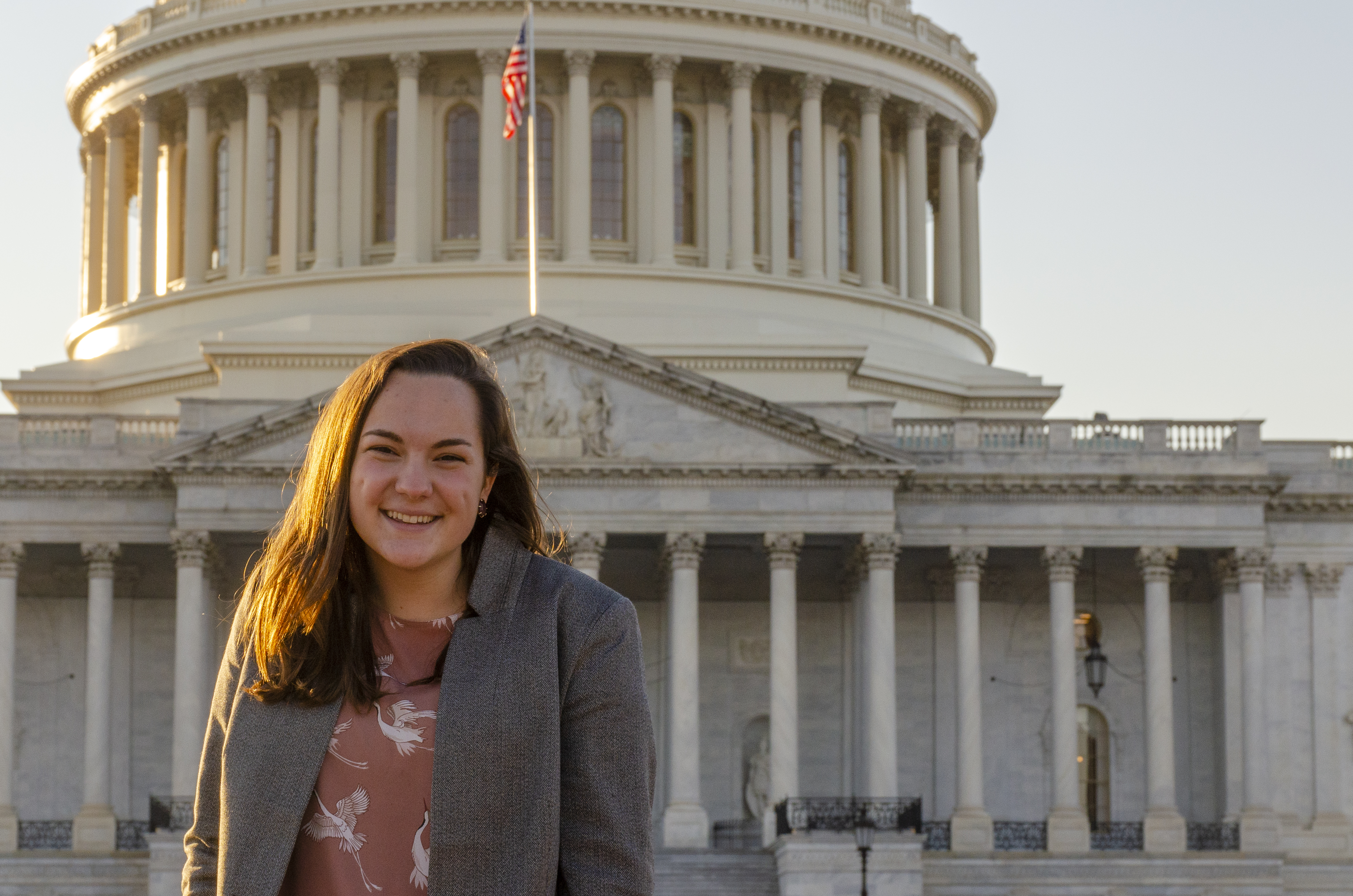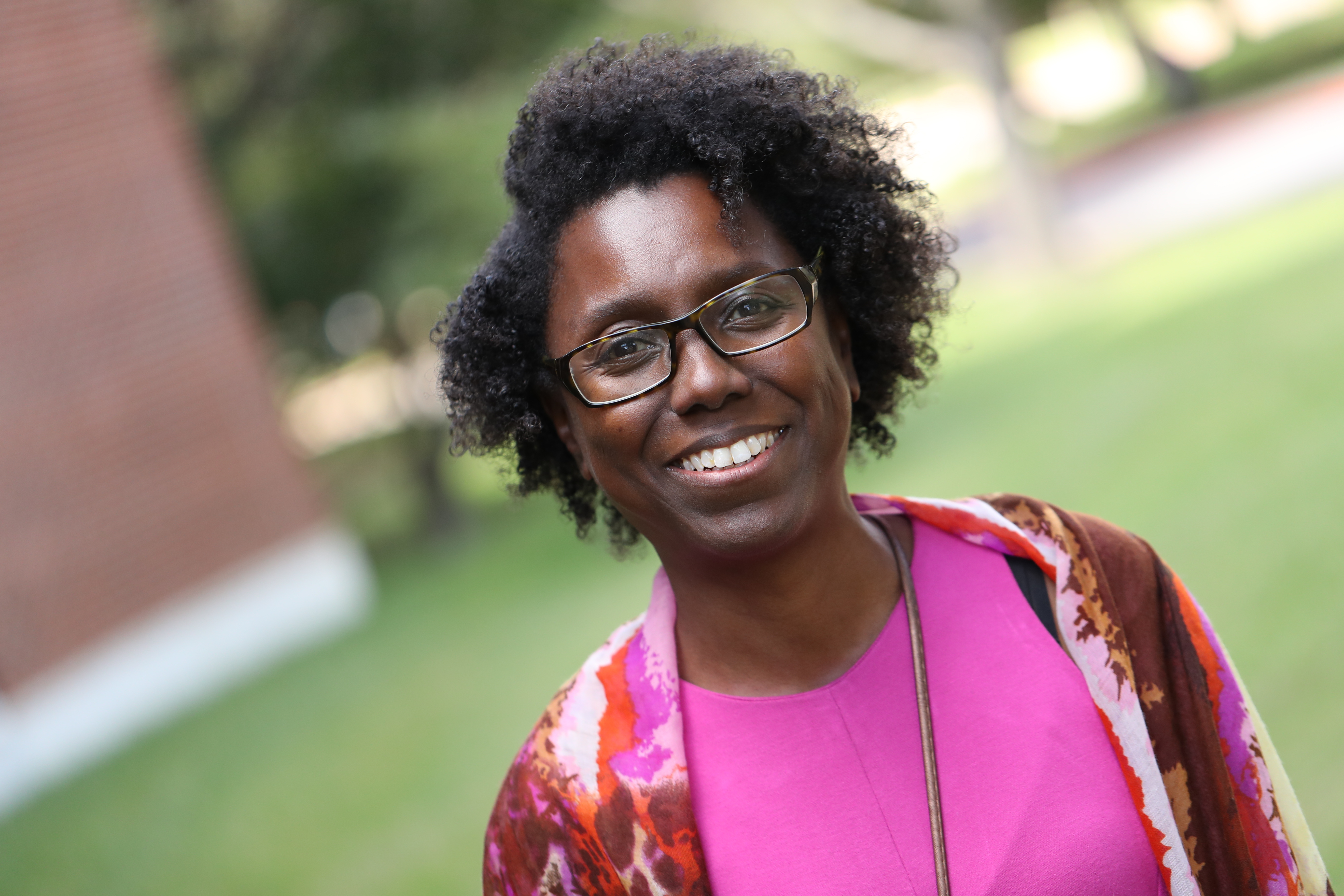The Center for Public Justice Awards Research Prize to Baylor Social Work Student, Professor to Study Food Insecurity Among Teens


Follow Eric on Twitter: @EricBaylorU
Follow us on Twitter:@BaylorUMedia
WACO, Texas (March 19, 2019) – Ana O’Quin, an Austin junior in Baylor University’s Diana R. Garland School of Social Work, believes food security is a basic human right that should be afforded every individual and family. That belief drives her nationally recognized undergraduate research of food insecurity among teens.
The Center for Public Justice, an independent, nonpartisan organization devoted to policy research and civic education, based in Washington, D.C., recently named O’Quin one of three recipients of the 2019 Shared Justice Student-Faculty Research Prize, a semester-long research project in which students write a comprehensive policy report on a social safety net program and its impact in their local community. Shared Justice is an online publication and community for Christians in their 20s and 30s interested in the intersection of faith, politics and justice.
O’Quin and her research advisor, Stephanie Boddie, Ph.D., assistant professor of church and community ministries in the Garland School of Social Work, will study Waco teenagers’ access to the Supplemental Nutrition Assistance Program (SNAP), a national program that offers nutrition assistance to eligible, low-income individuals and families. O’Quin, whose minor is in poverty and social justice, said she believes teens are often left out of the national conversation surrounding food insecurity and hopes her research will give that population a voice.
“As a Young Life leader working with high school students, I have seen the very real and detrimental effects that food insecurity can have for teens,” O’Quin said. “I hope to use this research to increase dialogue around how teens acutely and uniquely experience food insecurity.”
Research shows that food insecurity and hunger among teenagers can lead to a host of challenges, including an inability to focus during school, poor grades, physical and mental health issues such as obesity, anemia and anxiety, drug use and criminal activity, O’Quin said. It’s estimated that there are 2.5 million teenagers battling food insecurity throughout the United States.
“Food also is important for a teen’s social dynamic with other peers, and there is a heavy stigma around receiving food assistance that can lower a person’s self-esteem,” she said.
O’Quin spent her youngest years in Indonesia where her parents, both Baylor graduates, served as missionaries. Her father also worked to start small businesses to empower Indonesians. When she was a teenager, the family moved back to Texas. O’Quin said her experiences overseas and her time in Austin helped shape her desire for social justice.
“From a young age, I saw the great amount of injustice and suffering that people can face, specifically around the effects of poverty. Yet I also saw the ways that hope can be brought to the most hopeless situations,” O’Quin said. “After moving to Austin for most of high school, I saw social justice movements that I felt inspired by as well. My faith, and growing in understanding of God’s heart for justice, is the main reason behind choosing to major in social work.”
For the Shared Justice project, O’Quin will work with Waco teenagers to learn their stories, take photos and provide narratives about their experience of food insecurity and Waco’s food landscape. The study will build on existing research by the Urban Institute and Feeding America to identify the factors shaping the experience of food insecurity for Waco teens.
O’Quin will also interview community leaders active in Waco’s food system. The final report will be published by The Center for Public Justice.
“I see research as an opportunity to find common ground in the midst of a world full of polarizing conversations and divided political opinions,” O’Quin said. “With research, we can move forward in conversation about our roles as citizens, and the government’s role, in supporting and empowering forgotten populations. I hope that this project, and my research in the future, will showcase the voices of oppressed people groups, ones that deserve to be heard.”
Boddie, who serves as O’Quin’s faculty advisor for the project, said Baylor offers a unique opportunity to connect with experts on food insecurity through the Diana R. Garland School of Social Work, the Texas Hunger Initiative, the School of Education, and other university departments. Those opportunities align with Baylor’s academic strategic plan, Illuminate, which seeks to provide students with a transformational undergraduate education – and much of that comes in the form of research and scholarship opportunities.
Boddie and O’Quin meet regularly to discuss O’Quin’s progress and next steps. Boddie reviews each draft and assists O’Quin to identify relevant literature and gaps in the research. Boddie said she’s encouraging O’Quin to explore ways to share her work locally to move the conversation forward with teens at the policy table.
“Ana is discovering the joys and benefits of research,” Boddie said. “Given Ana’s engagement with youth in Waco through her volunteer work, this community-based research project also helps her to translate what she has learned in her social work classes to research that has the potential to make a difference in the lives of the teens and the local Waco community. This is the kind of return on investment I wish every student and faculty could experience at Baylor.”
O’Quin said she has found treasure in the faculty-student mentor relationship.
“Not only does Dr. Boddie walk closely with me in editing, drafting and participating in research, no matter how late at night, but she has advocated for and inspired me,” O’Quin said. “She sees potential in me that I do not always see in myself, and I have seen that as a trend for many faculty members.”
To learn more about the Student Research Prize, visit SharedJustice.org.
ABOUT BAYLOR UNIVERSITY
Baylor University is a private Christian University and a nationally ranked research institution. The University provides a vibrant campus community for more than 17,000 students by blending interdisciplinary research with an international reputation for educational excellence and a faculty commitment to teaching and scholarship. Chartered in 1845 by the Republic of Texas through the efforts of Baptist pioneers, Baylor is the oldest continually operating University in Texas. Located in Waco, Baylor welcomes students from all 50 states and more than 80 countries to study a broad range of degrees among its 12 nationally recognized academic divisions.
ABOUT THE DIANA R. GARLAND SCHOOL OF SOCIAL WORK AT BAYLOR UNIVERSITY
Baylor University’s Diana R. Garland School of Social Work is home to one of the leading graduate social work programs in the nation with a research agenda focused on the integration of faith and practice. Upholding its mission of preparing social workers in a Christian context for worldwide service and leadership, the School offers a baccalaureate degree (B.S.W.);a Master of Social Work (M.S.W.) degree available on the Waco or Houston campuses or online; three joint-degree options, M.S.W./M.B.A., M.S.W./M.Div. and M.S.W./M.T.S., through a partnership with Baylor’s Hankamer School of Business and George W. Truett Theological Seminary; and an online Ph.D. program. Visit www.baylor.edu/social_work to learn more.